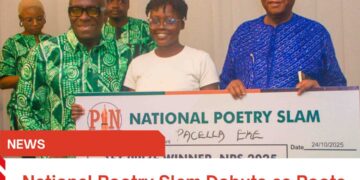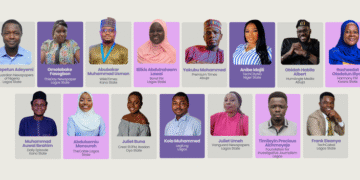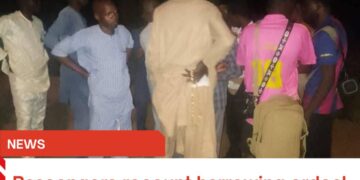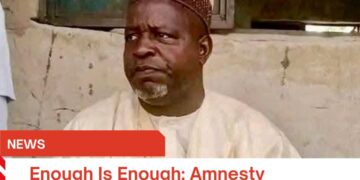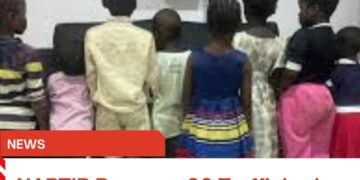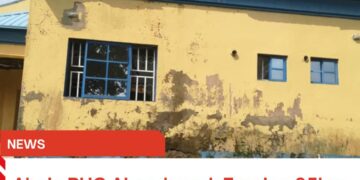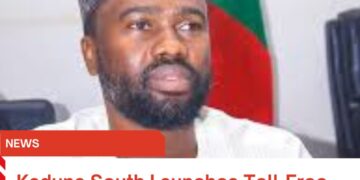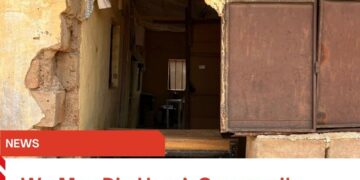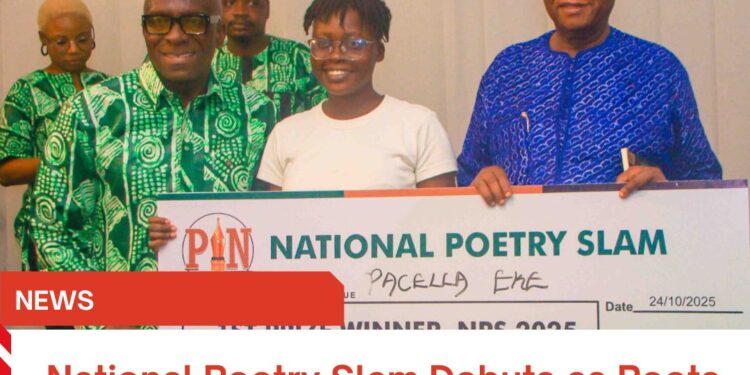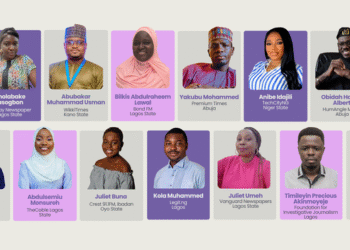In a landmark celebration of creativity and spoken word, Poets in Nigeria (PIN) marked its 10th anniversary with a National Poetry Slam, drawing poets from across the nation and setting a new milestone for Nigeria’s growing performance poetry community.
Over the years, PIN has championed the art of poetry by mentoring young writers and giving poets spaces to be heard. From grassroots events to school outreach, the organisation has built a literary movement that connects art to everyday life.
Reflecting on the journey, Eriata Oribhabor, founder and president of PIN, described it as one of “intense passion and conviction”.
“The journey of PIN focused on bringing the beauty and essence of poetry to the doorsteps of Nigerians,” he said. “ It’s the journey of a madman who successfully elicited the madness in a few others, collectively deriving our nation’s poetry renaissance from 2015 to date.”
From its early activities in Abuja and Lagos to landmark initiatives such as the Nigerian Students Poetry Prize, the Festival of Calabar Poetry, and the Cross-Country Poetry Celebration, PIN has connected poets across generations and regions. This also saw it building a nationwide network rooted in the belief that poetry is life and community.
And to commemorate its ten years of consistent work, PIN hosted the inaugural National Poetry Slam, which is a competitive platform designed to celebrate spoken word artists and push them towards national and international recognition.
“With the National Poetry Slam, we aim to showcase young performance poets with the intention of pitching them for bigger platforms and industry collaborations,” said Isa’ac Daniel, who helped put the slam together. “Yes, this was the first of its kind for us, and we intend to make it an annual event.”
According to Isa’ac, more than 120 entries were received for the maiden edition, with 54 poets making it to the main slam. Poets travelled from all regions of the country to compete, delivering powerful verses that explored themes of identity, hope, love, and social justice.
The competition unfolded in four rounds, judged by a panel of seasoned spoken word artists that included Tamara Dogubo, Aremo Gemini, and Jim Adichie, who evaluated performances based on creativity, delivery, stage presence, and originality.
After a tense series of performances, three poets emerged at the top.
First Prize (₦500,000): Pacella Eke
Second Prize (₦300,000): Muna Okafor
Third Prize (₦150,000): Jay Sukpa
Consolation Prize (₦50,000): Abimbọla Adebayo
The slam prizes were sponsored by Prince Yemisi Shyllon, a well-known Nigerian art patron, philanthropist, and cultural advocate whose decades-long investment in the arts has helped preserve and promote Nigeria’s creative heritage.
For Pacella Eke, the winner of the first National Poetry Slam, the victory came with a mix of disbelief, calm, and delayed joy.
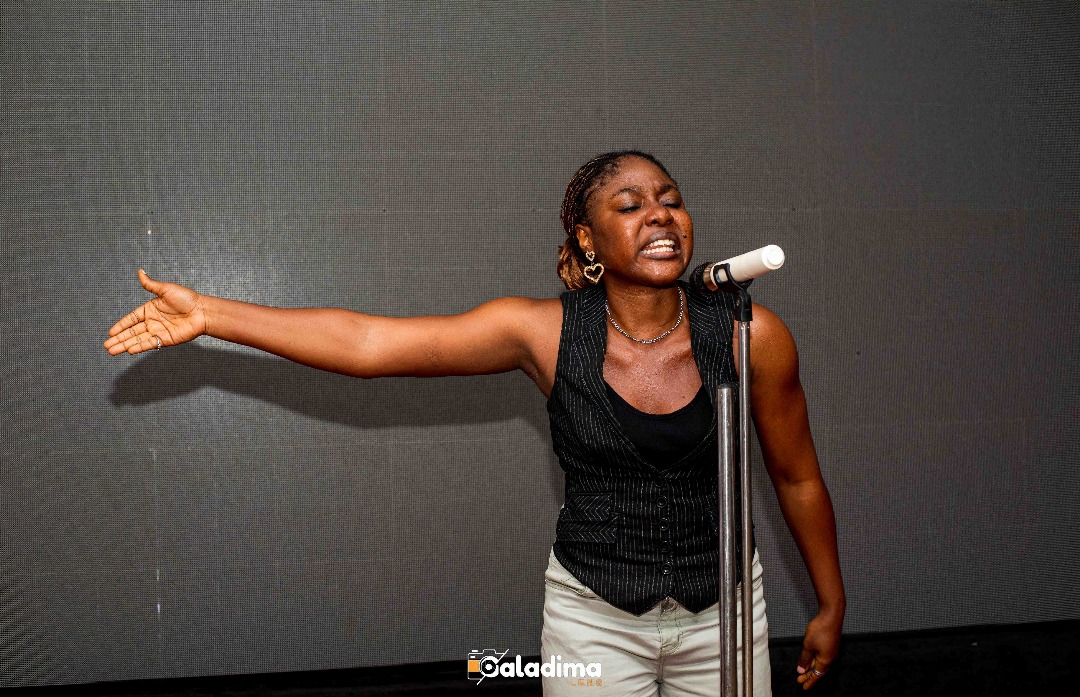
“It was a lot of emotions,” she said. “Because the results weren’t announced the same day of the slam, I knew the excitement would reduce—depreciate, sort of. I was on the road back to Abuja when I got the news. I didn’t feel anything at the moment. I was numb. And then I called my sister; her scream was enough to jolt me out of my head and be happy for myself.”
Pacella’s performance reportedly blended lyrical confidence with emotional clarity, winning over both judges and audience.
Muna Okafor, the first runner-up from Abuja, has been performing poetry for about two years. She described the experience as both exhausting and empowering.
“I’d say I am very proud of myself,” Muna said. “I know that I could have been better, but considering the situation at the time—being tired and slightly sleep-deprived—I gave it all I had to give. It’s also a big confidence boost. Going against 54 other slammers is actually insane. It was pretty competitive, especially from the semi-finals.”
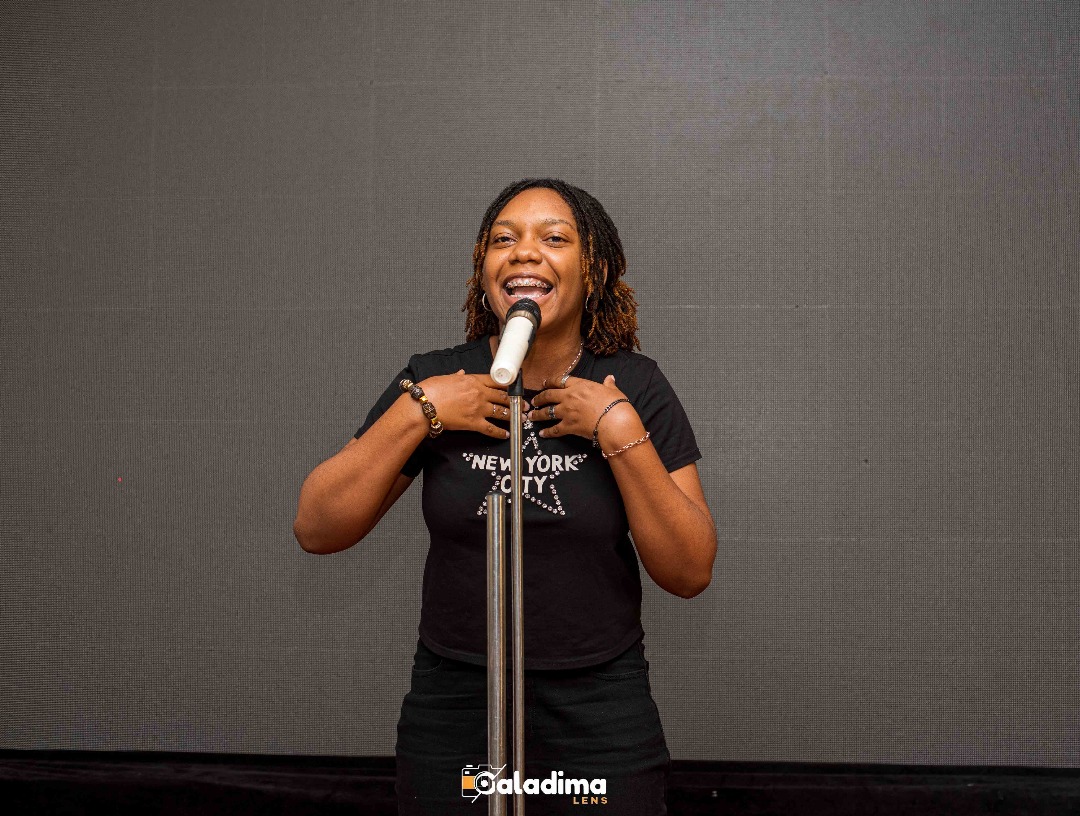
Muna, who plans to publish her first poetry collection next year, added that the slam has strengthened her belief in pursuing performance poetry full-time.
The second runner-up, Jay Sukpa, feels that whenever a win like this comes, there’s this burden of doing more, not just for the win, not just for the title, but for the fact that being recognised for his hard work means people will always expect more from him.
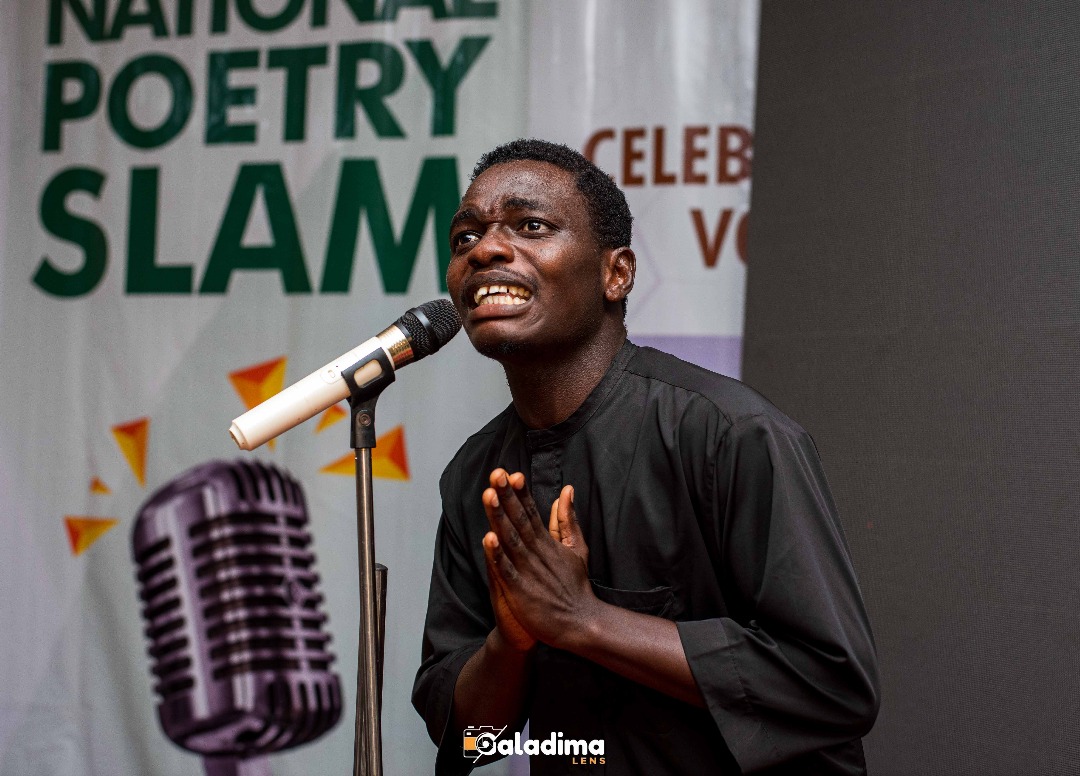
“In some way, it’s a burden poets don’t talk about,” he shared. “I feel like there’s more work to be done.”
The strong turnout and national participation, he believes, are proof of poetry’s growing audience and potential in Nigeria and beyond.


